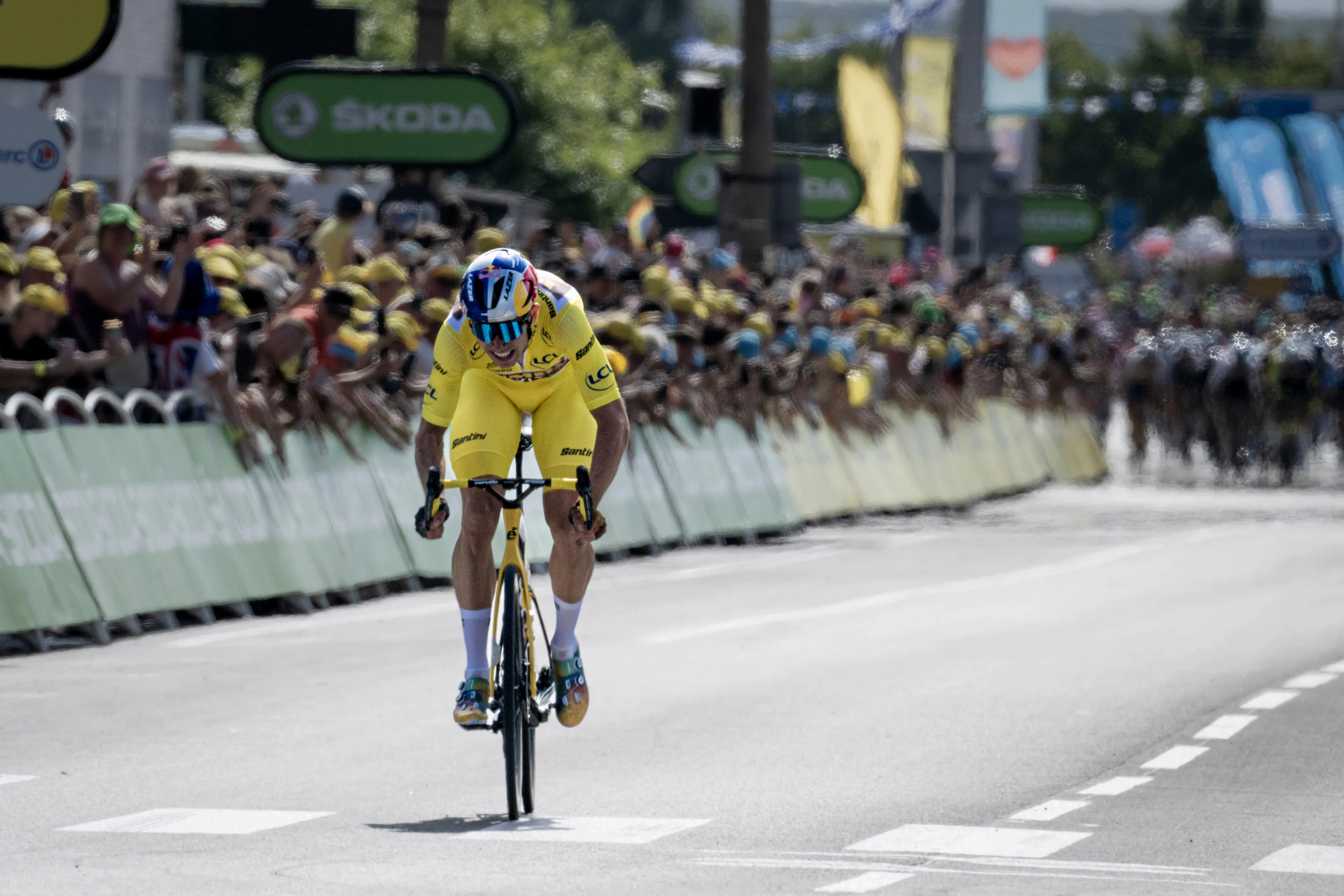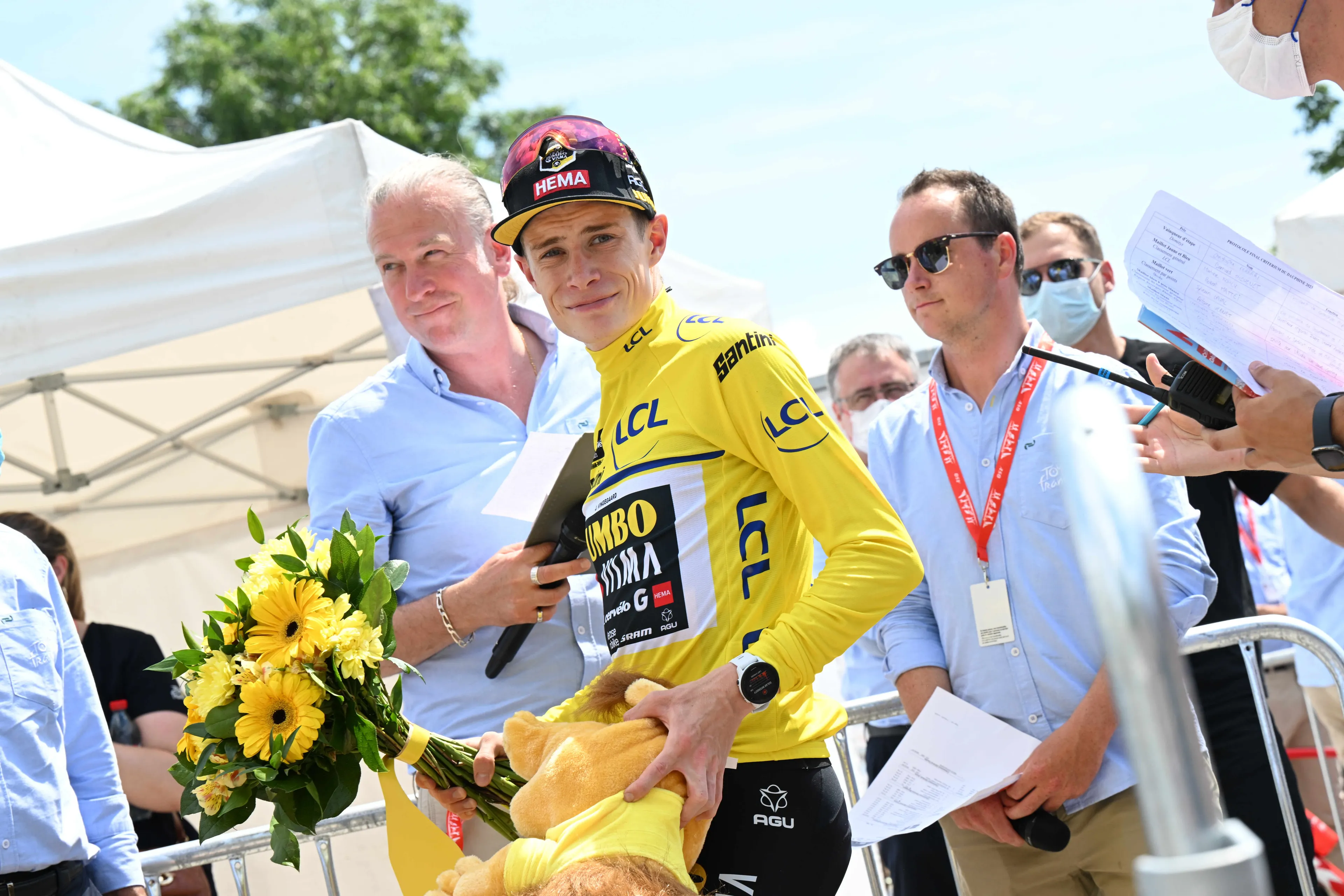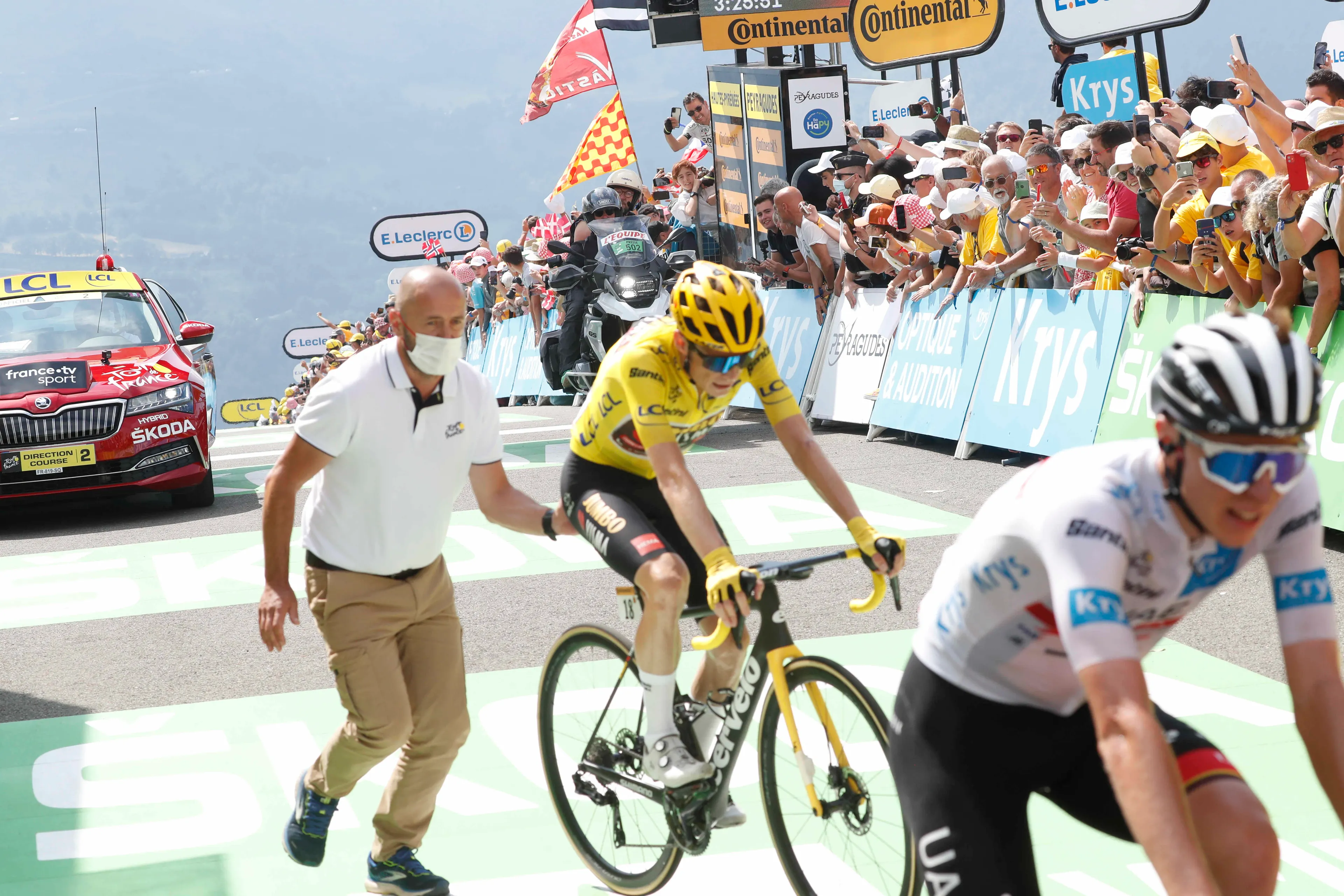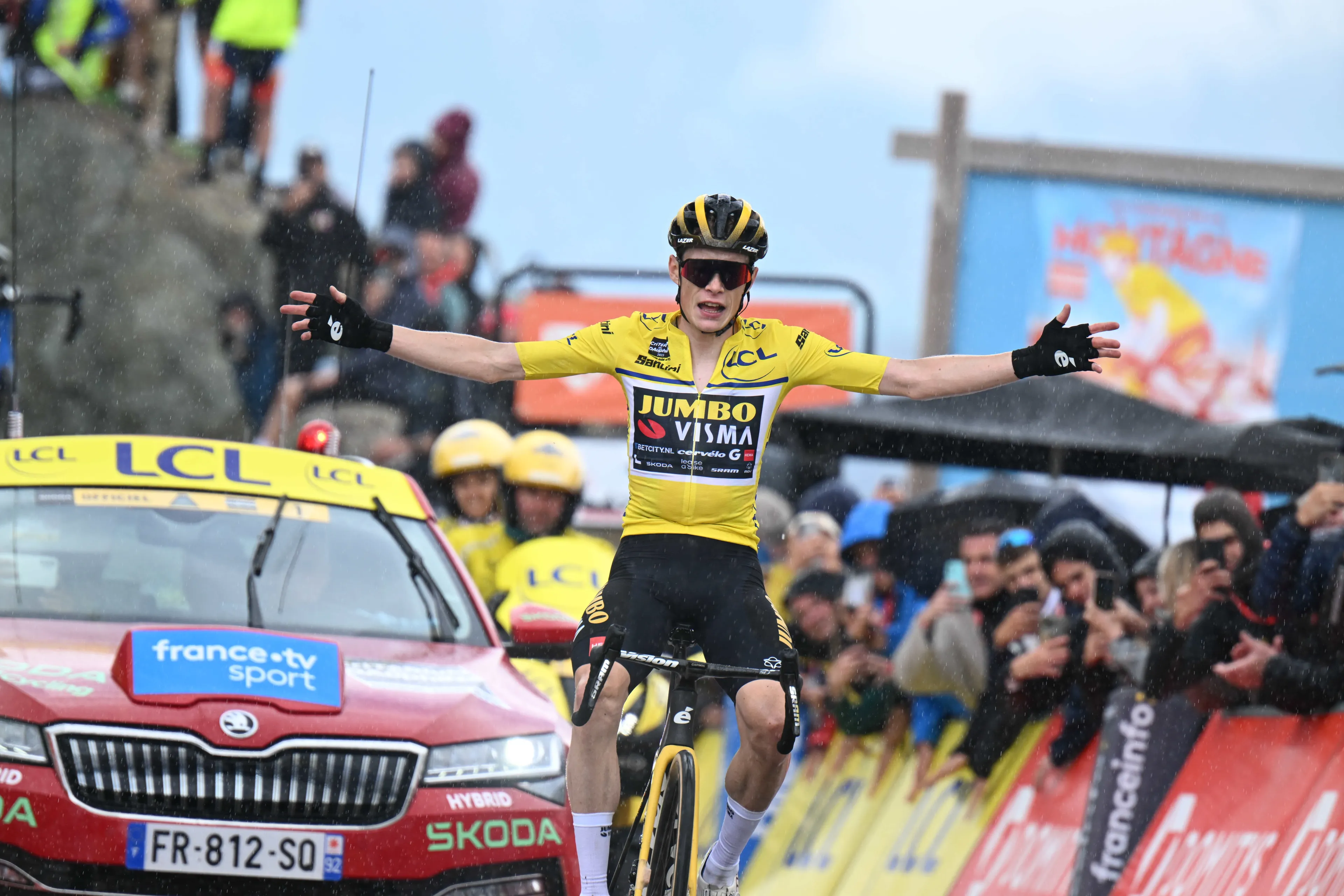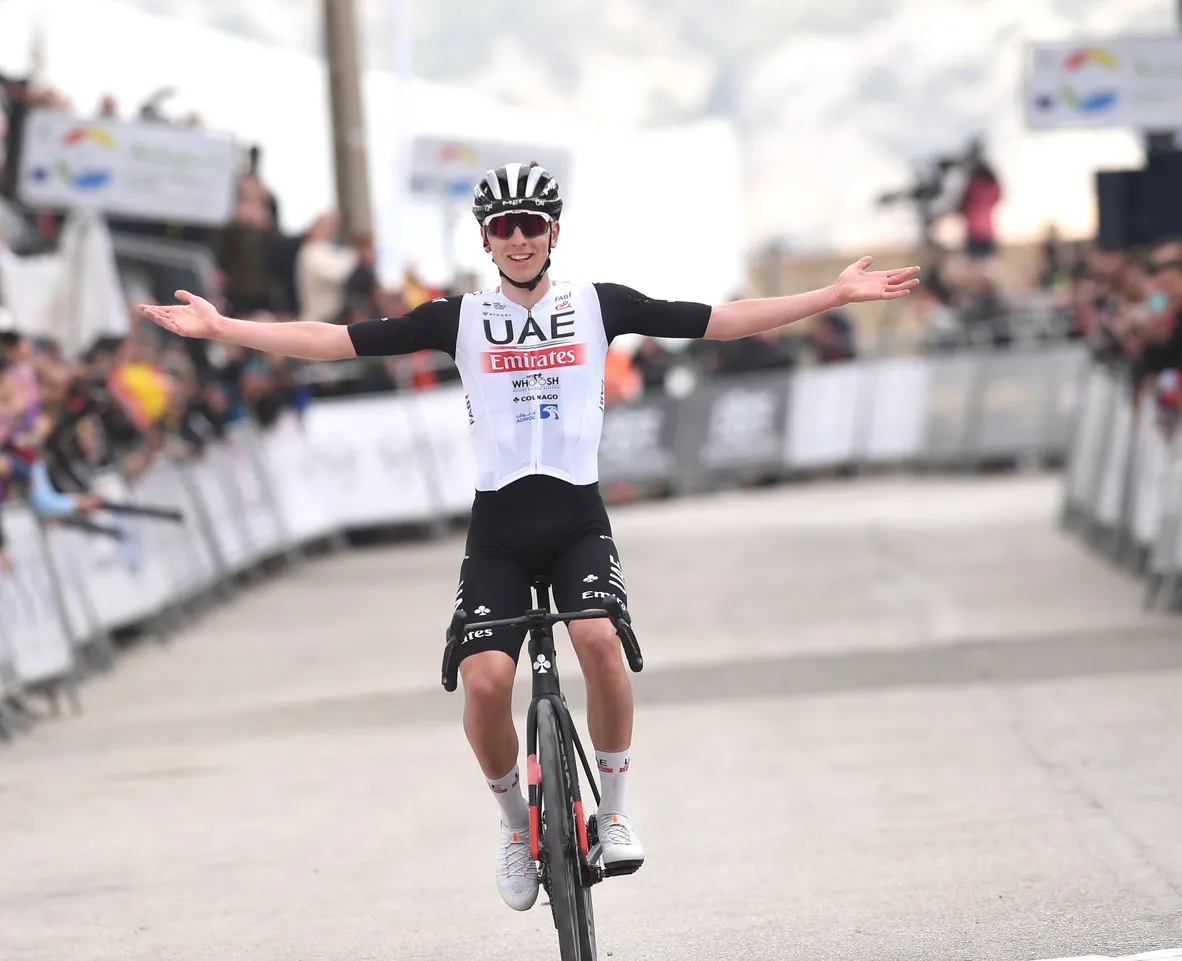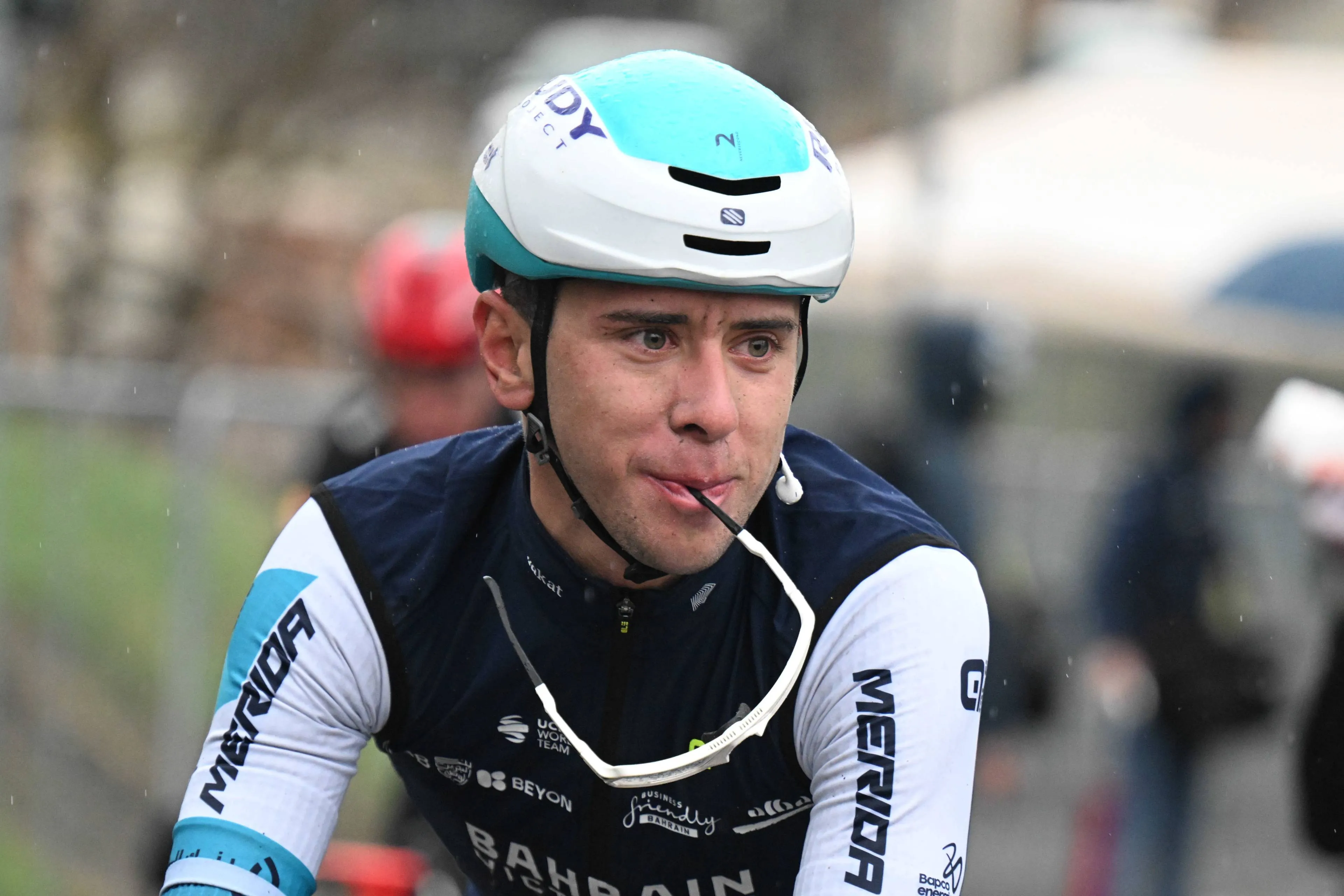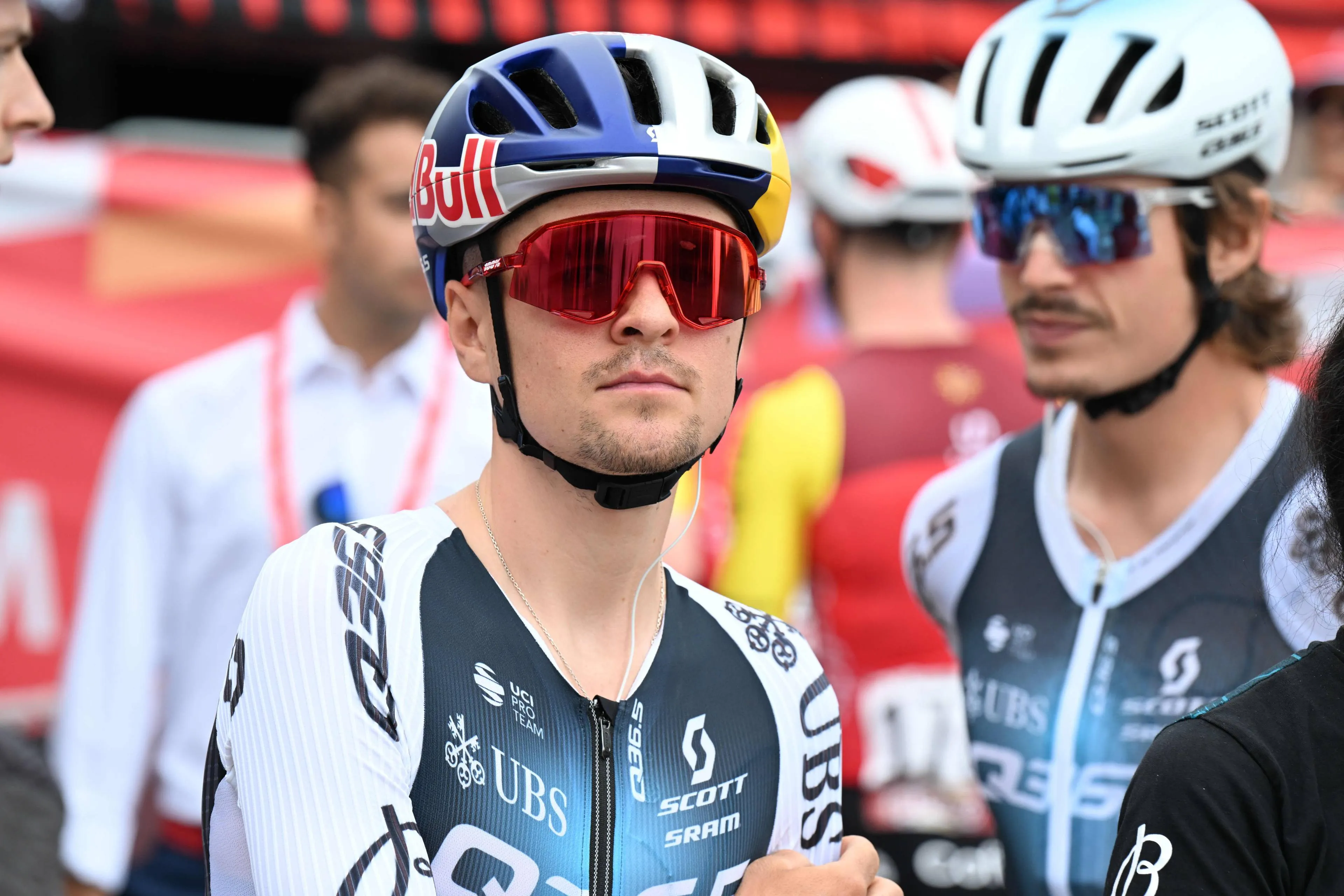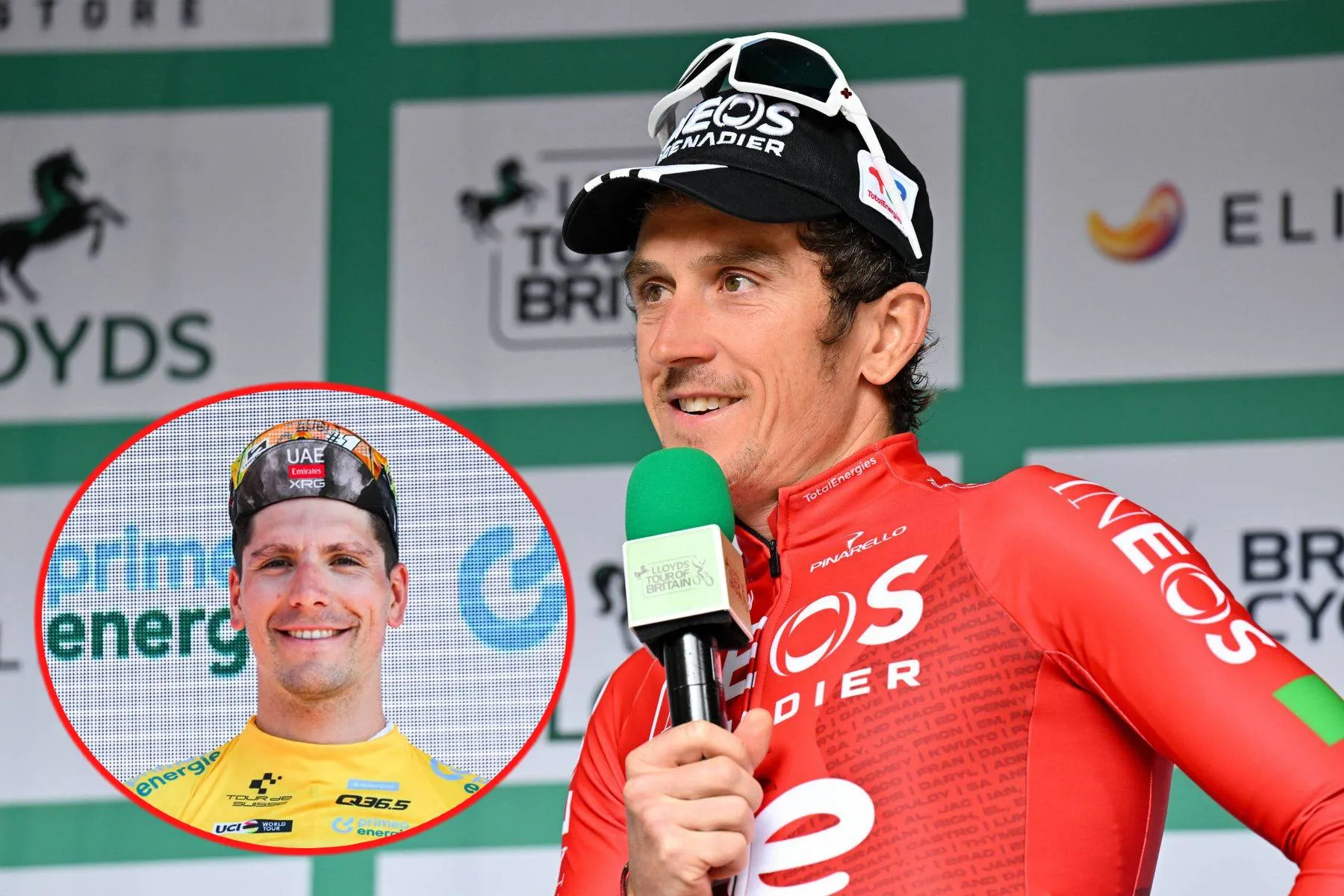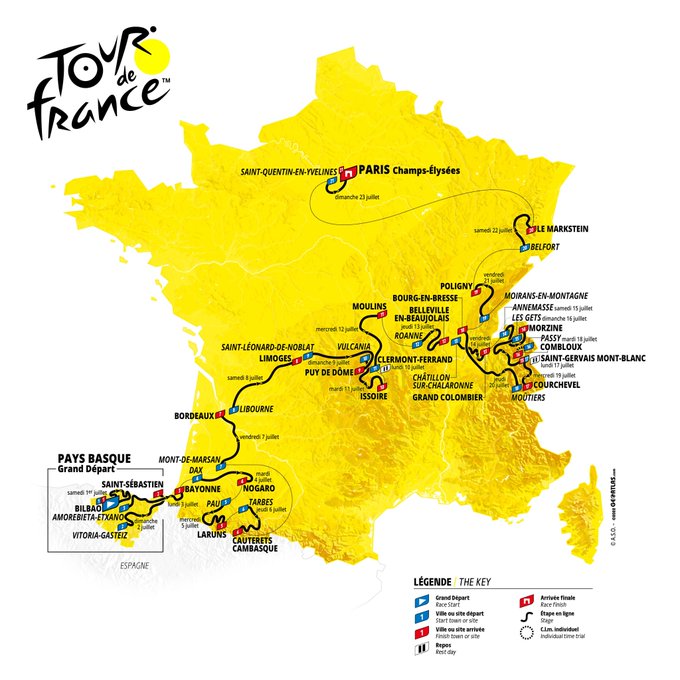PREVIEW | Tour de France 2023 - Key stages, how the Pogacar vs Vingegaard battle will unfold and the star-studded peloton
CyclingSaturday, 01 July 2023 at 10:11
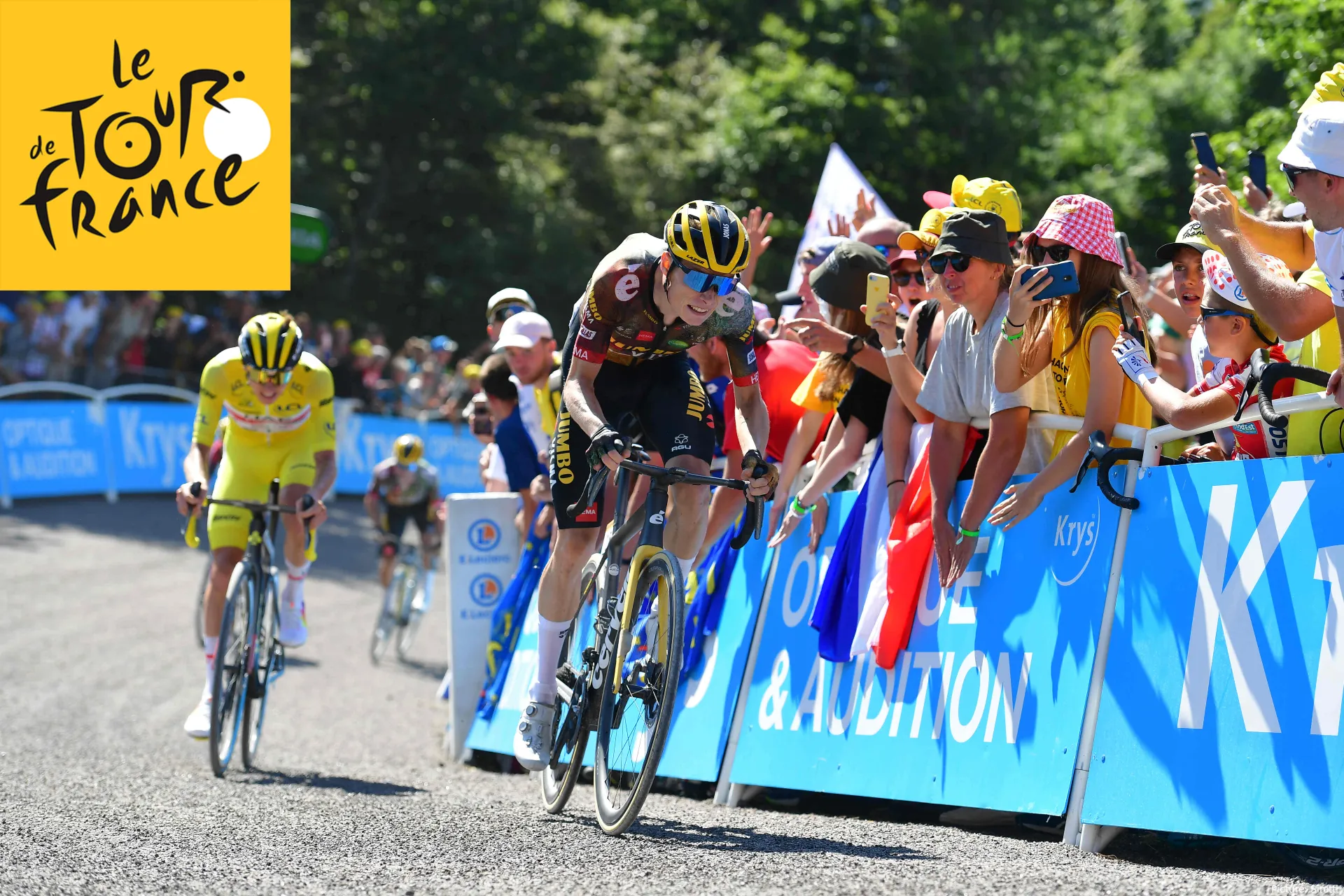
Preview. The 2023 Tour de France will take place from the 1st to 23rd of July 2023 and will be the 110th edition of the Grand Boucle. A race starting the Basque Country in Spain, it will see another set of masterful performances and show across the three weeks in what many term as the climax of the cycling season!
It is the race in the calendar which features the most international exposure, which feature some of the most luxurious startlist in quite literally every specialty in road cycling, and will give light to some of the biggest and loudest crowds in the world. It is the Tour de France, for many cycling fans the most special three weeks of the year, it's time to take a look at what is in store for us!
Read also
Sprinter Stages
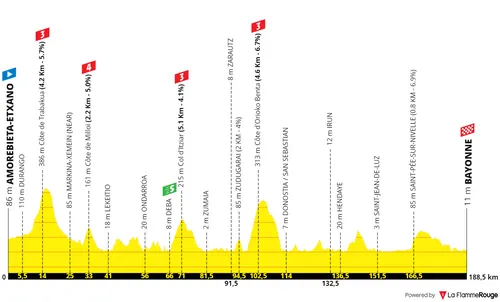
Stage 3: Amorebieta-Etzano - Bayonne, 188.7 kilometers

Stage 4: Dax - Nogaro, 181.2 kilometers
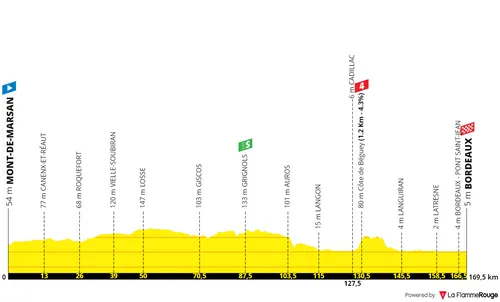
Stage 7: Mont-de-Marsan - Bordeaux, 169.8 kilometers

Stage 8: Libourne - Limoges, 200.9 kilometers
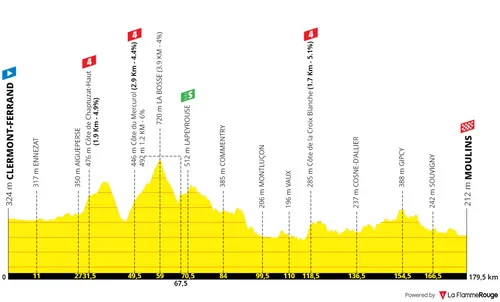
Stage 11: Clermont-Ferrand - Moulins, 179.8 kilometers

Stage 18: Môutiers - Bourg-en-Bresse, 185.4 kilometers
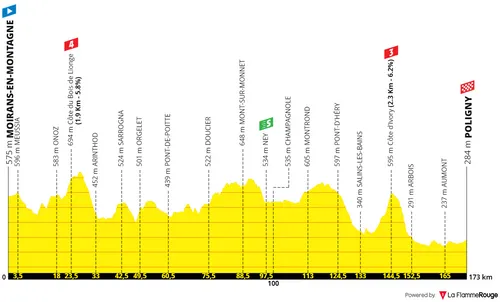
Stage 19: Moirans-en-Montagne - Poligny, 173.4 kilometers
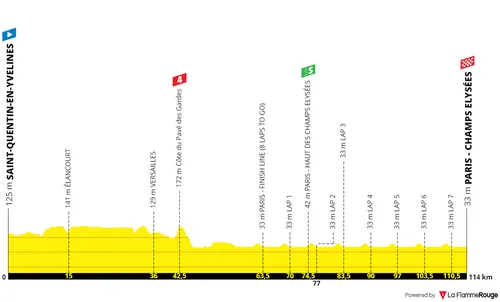
Stage 21: Saint-Quentin-en-Yvelines - Paris, 114.8 kilometers
As traditional, the Tour is the Grand Tour that fits best the needs of the sprinters. There will be seven days which are largely flat and should be easy enough for the teams of the fast men to control the action, on stages 3, 4, 7, 8, 11, 18, 19 and 21.
These will be finales in the cities of Bayonne, Nogaro, Bordeaux, Limoges, Moulins, Bourg-en-Bresse, Poligny and finally Paris. Stages 3, 8 and 19 may be somewhat selective as they feature some amount of climbing, however unless the pace is pushed serious all the sprinters should be capable of fighting for the top places.
Read also
Mixed Stages
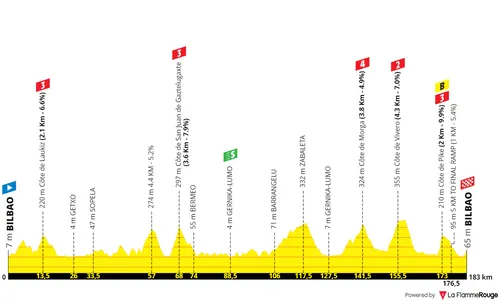
Stage 1: Bilbao - Bilbao, 183.1 kilometers

Stage 2: Vitoria-Gasteiz - Donostia San Sebastián, 210.1 kilometers

Stage 10: Vulcania - Issoire, 167.6 kilometers
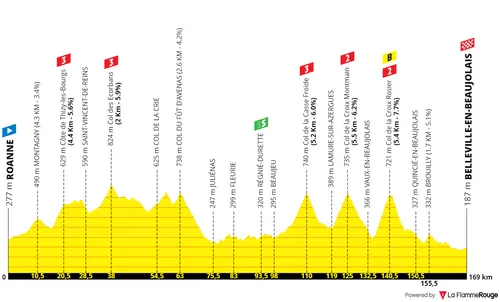
Stage 12: Roanne - Belleville-en-Beaujolais, 169.3 kilometers
There will be four hilly stages throughout the Tour, all of which with the exact same formula towards their finale. These will be stages 1 and 2 for a starter which match with the Grand Depart in the Basque Country. The opening day will see a finale in Bilbao, with the ascent to the Côte de Pike (2Km; 9.9%) just mere kilometers away, with the first yellow jersey of the race likely to be a climber or puncheur. Stage 2 into San Sebastián will feature several ascents in the area, with the climb of the Jaizkibel (8.2Km; 5.2%) planted shortly before the finish where attacks may happen.
It will then be in the Massif Central that the race will find it's other two hilly stages, on days 10 and 12. Stage 10 into Issoire sees climbing from start to finish in an explosive day, which doesn't feature any major climb but overall has the riders climb over 3000 meters. Stage 12 into Belleville-en-Beaujolais has seven categorized ascents, with the Col de la Croix Rosier (4.9Km; 7.7%) ending a quick succession of climbs where the stage could be decided.
Read also
GC Stages
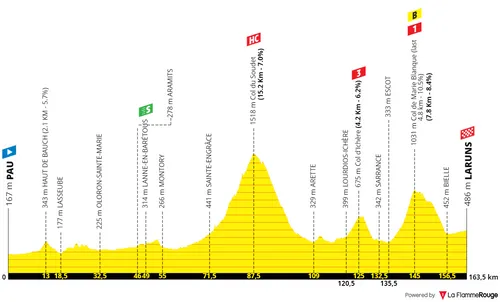
Stage 5: Pau - Lauruns, 163.8 kilometers
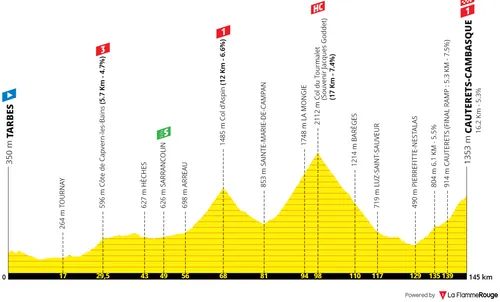
Stage 6: Tarbes - Cauterets-Cambasque, 145.4 kilometers

Stage 9: Saint-Léoonard-de-Noblat - Puy de Dôme, 182.8 kilometers
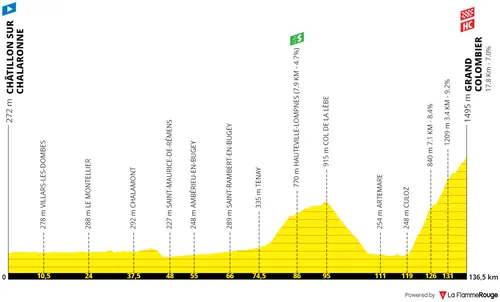
Stage 13: Châtillon-sue-Chalaronne - Grand Colombier, 138.3 kilometers

Stage 14: Annemasse - Morzine Les Portes du Soleil, 152.6 kilometers

Stage 15: Les Gets Les Portes du Soleil - Saint-Gervais Mont-Blanc (Le Betex), 180.1 kilometers

Stage 16 (ITT): Passy - Combloux, 22.4 kilometers
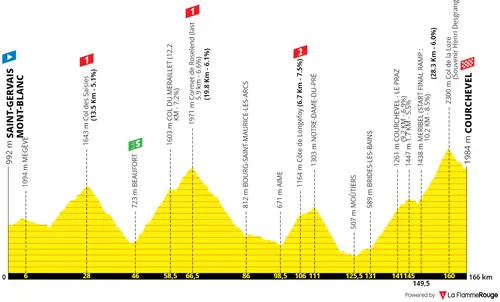
Stage 17: Saint-Gervais Mont Blanc - Courchevel, 166.4 kilometers
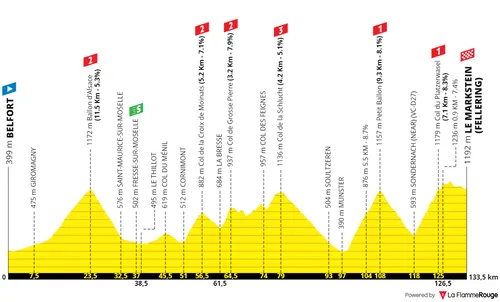
Stage 20: Belfort - Le Markstein, 133.5 kilometers
It is in the mountains however that the race will be decided. A Tour de France for the climbers, most would say. All mountain ranges will be represented, and the time-trialing kilometers are close to meaningless, the pure climbers have a saying. The race will enter the Pyrenees very early on stage 5 with the climb of the tough Col du Soudet (15.1Km; 7%), however the highlight of the stage will be the late climb to Col de Marie Blanque which features steep gradients, it has 9.2 kilometers at 7.6% before the finale in Laruns.
Stage 6 has the riders race up the Col d'Aspin (12Km; 6.6%) and the Col du Tourmalet (17.2Km; 7.3%) before the summit finish at Cauterets. The final climb is 16.2 kilometers long at 5.3% and is the first summit finish of the race, where differences are expected. Stage 9 sees the return of the mythical Puy de Dôme. It is the most important day in the Massif Central, mostly flat or with little climbing, but the summit finish will see big gaps emerge. The final climb is 13.9 kilometers long at 7.7% average gradient, however it's final 5.1 kilometers average over 11% on narrow roads, and it will be tough terrain to tackle.
Read also
Into the Jura mountains, stage 13 will see another summit finish. This will be at the Col du Grand Colombier at the end of a largely calm day. The final climb is colossal however, featuring 17.8 kilometers at 7%. The next day the riders have around 4200 meters of climbing, as stage 14 travels to Morzine. On the way are several climbing challenges, most noticeably the Col de la Ramaz (14.1Km; 6.9%) and the Col de Joux-Plane (11.7Km; 8.5%). A final climb where differences are surprisingly rarely made, but in such a tough day it is quite likely this year.
Stage 15 has 9 categorized climbs and 4500 meters of climbing. It is a tough and explosive day in the Alps, with many different ascents throughout the day. Most of the GC riders' energy should be saved for the finale however, where the combination of the Côte des Amerands (2.7Km; 10.1%) and the summit finish at Saint-Gervais Mont-Blanc (7.3Km; 7.8%) will cause a lot of damage. Stage 16, into the final week, will be the race's sole individual time-trial. It is merely 22.6 kilometers in distance, and has two climbs and a meaningful descent. 1.3Km at 8.8% early in the effort, but the day will end uphill in Combloux after tackling the very steep Côte de Domancy (2.7Km; 8.9%).
Read also
Stage 17 is the queen stage. 5400 meters of climbing, an epic day in the mountains and climax of the Alpine action. The Col des Saisies (13.5Km; 5.2%), Cormet de Roseland (20.3Km; 6.1%) and Côte de Longefoy (6.7Km; 7.5%) will be hard but only a warm-up. Then the return of the brutal Col de la Loze. In total, 28 kilometers at over 6%, however it's last 10 kilometers average over 8% and is quite irregular, with it's ramps reaching at over 20% close to the summit. It's an incredibly hard ascent that could turn the GC on it's head. After a fast descent there will still be a very steep pinch to the line in Courchevel.
After two flat days the final mountain stage will be in the Vosges, but surprisingly the race organizers have decided not to feature the Planche des Belles Filles. Instead a day full of exciting climbs will be on the menu, hard enough to once again see the GC riders on their knees. It is an explosive day with 133 kilometers in the menu only, however with 3500 meters of climbing and six categorized climbs. The outcome of the stage will be decided at the quick succession of the Petit Ballon (9.2Km; 8.2%) and the Col du Platzerwasel (7.1Km; 8.3%) which comes right before the finish line at Le Markstein.
Read also
GC contenders
Jonas Vingegaard - The reigning champion. Jonas Vingegaard won the Tour convincingly last year and unfortunately for his rivals his level is the same, if not higher coming into this race. Although early in the year he was defeated by Pogacar at Paris-Nice, he clearly didn't have his best form. Dominant wins in Itzulia and now at the Dauphiné assure he has the legs to win yellow again. With an incredibly strong and well-rounded Jumbo-Visma behind him, alongside no weak spots, he'll be a headache for Tadej Pogacar.
Tadej Pogacar - Pogacar is, and I think we can say this safely, the only realistic rival for Vingegaard if (and that's a big if on a 21-day race) nothing too weird happens. Injured two months ago and with a preparation different than that of any other GC contender. He's won both time-trial and road race in the Slovenian nationals, sure not the most convincing wins but he certainly has decent form at least. From what we see in this young generation, these guys recover at hypersonic speed. I have no doubt we'll see the best Pogacar during this Tour, he headlines a strong UAE which is well equipped to fight for the win.
Jai Hindley - Likely, the fight for the podium begins here. After winning the Giro last year Jai Hindley is now leading BORA - hansgrohe at the Tour. A team split between support for him and the sprinters, he expects to ride in the wheels of the big two. Without time-trials to lose much time, this is a race to be decided in the mountains and that's where he thrives. He lacks the mammoth days the Giro always has, but still in a route with so many mountain stages and a fourth place at the Criterium du Dauphiné, it's safe to say the Australian has strong cards to play here.
Enric Mas - Hindered by illness at the Criterium du Dauphiné, Mas will be a bit of an outsider. Questions lie on which Mas we'll see, the one we had until last year's Tour, or post-Tour. Early in the year he was just as sharp and explosive. For a few months more modest, but he's riding the Tour and Vuelta once again. Matteo Jorgenson and Ruben Guerreiro will be tremendous support in the mountains when they're not hunting stages, and if the Spaniard finds his best legs he will be very interesting to see as he showed incredible climbing capacity late last year.
Read also
Mikel Landa & Pello Bilbao - Bahrain have an extraordinarily strong team but is very focused in stage wins. The likes of Matej Mohoric, Fred Wright and Phil Bauhaus will hunt that, whilst Mikel Landa and Pello Bilbao enjoy a home start. They will both be very motivated, Landa was not at his best in the Dauphiné but was superb throughout the spring. Bilbao will not be a podium contender likely but a Top10 figure perhaps, fighting for the podium in Suisse before he abandoned.
David Gaudu - Perhaps the most chaotic figure in the run-up to the race. Internal battles with Thibaut Pinot and Arnaud Démare were not the best for Groupama's Tour de France choices, and then he was very far from his best at the Dauphiné. There is pressure for a rider who battled so hard to have sole lead at the Tour, the team has responded now it's his time to prove his worth. Last year's fourth place was strong, he could finish on the podium this year but needs to improve quite a bit still.
Ben O'Connor - Lacking the time-trials, Ben O'Connor won't have his best route to hunt the podium, however after riding very strongly in the mountains of the Criterium du Dauphiné and finishing on the podium, he must be taken into consideration here. Take into consideration also Felix Gall, who has done an extraordinary Tour de Suisse, could end up being a GC contender however most likely he hunts stage wins and supports the Australian.
INEOS Grenadiers - INEOS is a team where it is the hardest to predict expectations. Egan Bernal is returning to the Tour which is amazing, likely he'll try to go for the GC but it's hard to know what to expect, however I wouldn't rule out a Top10. Daniel Martínez is having a very inconsistent season, I fear he will again not be able to remain in the fight and hunt stages. Carlos Rodríguez may be the most reliable card, 7th last year at the Vuelta and recently 9th at the Dauphiné. I don't think we'll be seeing INEOS fight for more than a Top10 in this field however.
Simon Yates - The only GC contender who comes in without any racing. Primoz Roglic did win the Giro d'Italia like this, so it is not a crazy idea. We have no indications of Yates' form, he was strong at Paris-Nice where he rode to fourth, but on the contrary Team Jayco AlUla have put most of their resources behind Dylan Groenewegen. He'll most likely try to go for the GC as the route will likely never suit him as well again, he'll be an interesting card to follow.
Read also
Richard Carapaz - The Ecuadorian won the Mercan'Tour Classic and then looked very explosive at the opening of the Criterium du Dauphiné, but then faded in the mountains. Worrying signs, Carapaz was a GC expert in INEOS and has finished third in the Tour back in 2021 where he last raced, but this year he isn't looking the same and EF said at the start of the year he might just go for wins. He is a wildcard no doubt.
Mattias Skjelmose - Another big, perhaps the biggest of wildcards is Mattias Skjelmose. Only one Grand Tour under his belt, however he is terrific at one-week races. Finishing in the Top10 of all Ardennes including second behind Pogacar at Flèche Wallone, and now beating Juan Ayuso and Remco Evenepoel at the Tour de Suisse are convincing arguments for a world class rider. He won Suisse strongly where he thrived in the time-trials and won a mountain stage, Trek goes all-in for stages already without him so I believe he will be given the freedom to chase a GC result.
Romain Bardet - 7th in Paris-Nice and Tour de Romandie, 5th at the Tour de Suisse. Because the race goes through the Massif Central and the Puy de Dôme, he'll be very motivated to perform. Higher than a Top10 however seems to be a tough ask, he did ride to 6th last year but he will have no support in the mountains and in a route with so many mountain stages he would more likely try to hunt another Tour win.
Guillaume Martin - Often an inconsistent rider, but many times one of the most interesting ones. Aggressive and regularly let go in breakaways, the leader of Cofidis can aim for a spot in the Top10 if he finds good form, even in a normal situation as he just came off a strong 6th spot at the Criterium du Dauphiné and will be looking to carry his form over to the Grand Boucle.
Prediction Tour de France 2023 overall classification:
*** Jonas Vingegaard, Tadej Pogacar
** Jai Hindley, Enric Mas
* Mikel Landa, Pello Bilbao, Ben O'Connor, Simon Yates, David Gaudu, Adam Yates, Romain Bardet, Carlos Rodríguez, Richard Carapaz
** Jai Hindley, Enric Mas
* Mikel Landa, Pello Bilbao, Ben O'Connor, Simon Yates, David Gaudu, Adam Yates, Romain Bardet, Carlos Rodríguez, Richard Carapaz
Pick: Jonas Vingegaard
Read also
Other Big Figures
The fight for the overall classification at the Tour includes so many quality climbers that others come to France without that plan, instead focusing on a stage win or maybe the KOM classification. Some of these may go for yellow, whilst simultaneously some of the above may drop out of the fight and then change their goals to stage hunting. Louis Meintjes, Tobias Johannessen, Torstein Traeen and Michael Woods should be among those mixed, whilst GC is most likely not in mind for other quality climbers such as Thibaut Pinot, Alexey Lutsenko, Giulio Ciccone, Aurélien Paret-Peintre, Neilson Powless, Ion Izagirre and Rui Costa.
As for the hilly days... The Tour is bursting with talent. Many classics specialists, puncheurs and rouleurs come into the race and most with free roles. They will hunt stage wins and make even the most modest of breakaway battles quality ones. Wout van Aert, Mathieu van der Poel, Tom Pidcock, Julian Alaphilippe, Matej Mohoric, Christophe Laporte, Dylan van Baarle, Fred Wright, Stefan Küng, Rasmus Tiller, Dylan Teuns, Maxim van Gils, Alex Aranburu, Benoît Cosnefroy, Soren Kragh Andersen and Rémi Cavagna give further shine to this year's Tour.
Read also
The Sprinters
And of course, there are the fast men. For many, victories in the Tour de France are the most important all year round, and for that reasons most of the world's best sprinters have joined the party. Although the route is full of mountain stages, they usually have flat starts and are short days on the bike, where they should have little problem riding through - unlike the Giro. The Tour is sprinter friendly and hence attracts them, and the best leadouts in the world too.
You've got Jasper Philipsen, Fabio Jakobsen, Dylan Groenewegen, Caleb Ewan, Mark Cavendish, Alexander Kristoff, Sam Welsford, Phil Bauhaus, Peter Sagan and Jordi Meeus coming in as the pure sprinters currently. Meanwhile others such as Wout van Aert, Christophe Laporte, Mads Pedersen, Bryan Coquard and Biniam Girmay are also expected in the bunch sprints, whilst perhaps having an upper hand on the hilly ones.
Prediction Tour de France 2023 points classification:
*** Jasper Philipsen, Mads Pedersen
** Fabio Jakobsen
* Dylan Groenewegen, Alexander Kristoff, Wout van Aert, Sam Welsford, Peter Sagan, Biniam Girmay, Christophe Laporte
** Fabio Jakobsen
* Dylan Groenewegen, Alexander Kristoff, Wout van Aert, Sam Welsford, Peter Sagan, Biniam Girmay, Christophe Laporte
Pick: Jasper Philipsen
Read also
claps 7visitors 5
Just in
Popular news
Latest comments
- You need to get out moreJezla18-02-2026
- Ego and self regard are at the center of most human folly.TheOlderIGetTheFasterIWas18-02-2026
- You can't win 'em all. These early season races at this level are good because it shows where you are weak and need work.awp18-02-2026
- This is what I wrote 12-02-2026 10:00: "As far as I'm convinced, Remco still has "zero" wins. I invite Remco to stop in Siena to meet his Slovenian master, Pogi the G.O.A.T... but no, it's better to run away and hide. His fans will somehow defend and glorify him. Let me repeat, he still has zero wins in 2026. If someone doesn't have a high enough IQ to understand what I'm talking about, it's because they don't recognize the low ranking F category races. If Remco will beat Del Toro and Adam Yates in the UAE Tour, then I will consider this to be his first win in 2026. Ad acta." PS: Remco still has zero wins. His second and third class races don't count. The first real race comes along and Mustafa Remco fails.Mou-Cro-HR18-02-2026
- This is what I wrote 12-02-2026 10:00: "As far as I'm convinced, Remco still has "zero" wins. I invite Remco to stop in Siena to meet his Slovenian master, Pogi the G.O.A.T... but no, it's better to run away and hide. His fans will somehow defend and glorify him. Let me repeat, he still has zero wins in 2026. If someone doesn't have a high enough IQ to understand what I'm talking about, it's because they don't recognize the low ranking F category races. If Remco will beat Del Toro and Adam Yates in the UAE Tour, then I will consider this to be his first win in 2026. Ad acta." PS: Remco still has zero wins. His second and third class races don't count. The first real race comes along and Mustafa fails.Mou-Cro-HR18-02-2026
- OK, let's stop with the BS. Remco Mustafa didn't have any cramps, 100%. The only truth is, Remco is not the great cyclist that the Belgians and his fans want us to think. Ad acta!!!... Once in the fall of 2025 I said that Remco's chances of following Pogi are equal to my chances, there is no difference. The only difference is that I'm in front of a TV and Mustafa is acting and making excuses live in front of an audience of millions. Ayuso and Remco are the biggest liars in the peleton.Mou-Cro-HR18-02-2026
- I just hope that he just says that he got cramps and that's it, rather than some long-winded excuse which makes him seem even more of a piece of...
 Rafionain-Glas18-02-2026
Rafionain-Glas18-02-2026 - finally, a team that does something smart. I could never understand why Ineos would like Egan train as he did alone. put a motorbike behind him with an earpiece to call out issues above. same with remco crashing into a postal truck.mij18-02-2026
- Wow, that is not a good sign for Remco. Great win for Tiberi!Pedalmasher18-02-2026
- Great champion Remco but his profile is more suitable for Ardennes-like races and tour with no very hard climbs. Not only Tadej and Vingegaard, there are a lot of younger cyclists (del Toro, Ayuso, maybe Seixas, Nordhagen and others) that will soon be big GC boys.
 maria2024202418-02-2026
maria2024202418-02-2026
Loading
Write a comment





